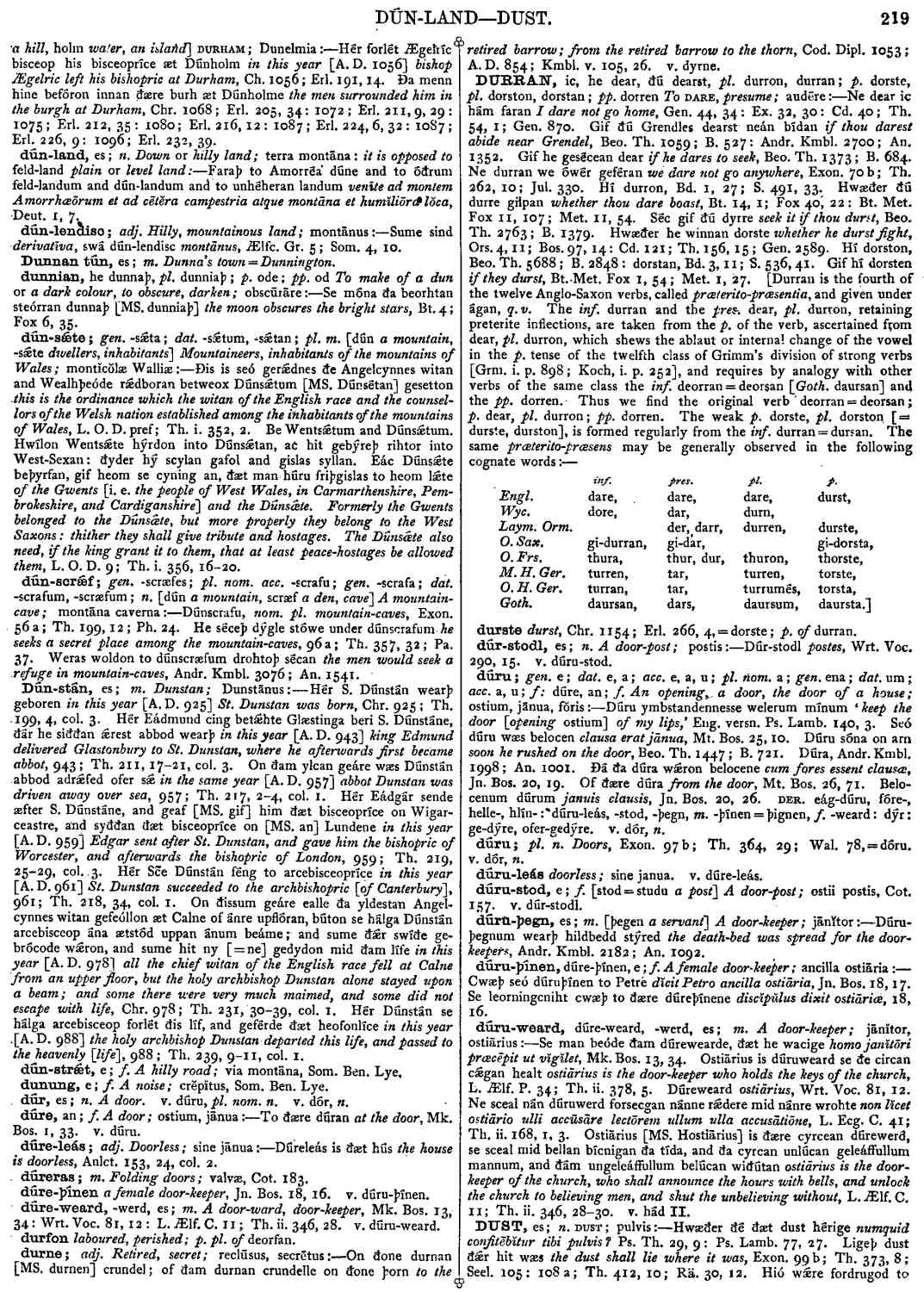dún-sǽte
- noun [ masculine ]
-
Ðis is seó gerǽdnes ðe Angelcynnes witan and Wealhþeóde rǽdboran betweox Dúnsǽtum [MS. Dúnsétan] gesetton
this is the ordinance which the witan of the English race and the counsellors of the Welsh nation established among the inhabitants of the mountains of Wales,
- L. O. D. pref ;
- Th. i. 352, 2.
-
Be Wentsǽtum and Dúnsǽtum. Hwílon Wentsǽte hýrdon into Dúnsǽtan, ac hit gebýreþ rihtor into West-Sexan: ðyder hý scylan gafol and gislas syllan. Eác Dúnsǽte beþyrfan, gif heom se cyning an, ðæt man húru friþgislas to heom lǽte
of the Gwents [i. e. the people of West Wales, in Carmarthenshire, Pembrokeshire, and Cardiganshire] and the Dúnsǽte. Formerly the Gwents belonged to the Dúnsǽte, but more properly they belong to the West Saxons: thither they shall give tribute and hostages. The Dúnsǽte also need, if the king grant it to them, that at least peace-hostages be allowed them,
- L. O. D. 9 ;
- Th. i. 356, 16-20.
Bosworth, Joseph. “dún-sǽte.” In An Anglo-Saxon Dictionary Online, edited by Thomas Northcote Toller, Christ Sean, and Ondřej Tichy. Prague: Faculty of Arts, Charles University, 2014. https://bosworthtoller.com/8117.
Checked: 1